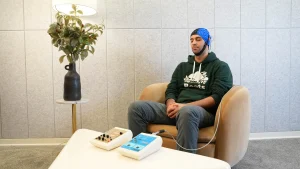As a parent, the back-to-school week can be a lot! One has to plan and prepare in advance. Set things in order and ensure that your child follows through with all the plans you may have to prepare. Add to that dealing with your child’s anxiety about returning to school. Setting things up in a schedule after a long summer break can be stressful. Below are some quick tips on ensuring you are equipped to address your child’s back-to-school anxiety.
Basic first.
Your child may not feel prepared for everything they must face in school. This is a common cause of anxiety. How can you prepare? If you haven’t already set a schedule, work on ensuring your child is eating and sleeping right, following through with their homework, and can wake up on time. Anxiety causes undue stress in common areas of life and can disrupt eating and sleeping patterns. Disturbed habits reduce one’s ability to cope. Moreover, balancing new priorities and interests needs to be gradually introduced into your child’s life as an influx can be overwhelming, causing more stress and anxiety. Keep off introducing new routines or activities until your child has settled into their school schedule and can balance the priorities at hand.
Look on the positive side
Children require positive reinforcement and constant reassurance without being confrontational. Praising your child for small wins, such as waking up on time, getting through the day, etc., is valuable. You can also use positive reinforcements regarding rewards or a points system. You may also choose to focus on the positive aspects and subtly ignore the negative ones. Asking your child about the highlights of their day is a great start on getting them to them positively and undermining the stressor that causes anxiety.
Your reaction as a Parent
When your child is not ready to let you go, and you get late for work, that is when it gets real. Pacifying your child’s anxiety and encouraging the idea that they do not need to go to school if they throw a tantrum reinforces your child’s behavior. Children are resilient and tend to cope soon enough. Undermining the ability of your child to manage anxiety is doing them more harm than good. You do not want to reinforce the idea that getting away from a stressful situation, in the long run, is okay. Returning to school and fixing this behavior becomes a long-drawn process!
Create a safe space for the child to share their fears
Your child may feel anxious due to the presence of a bully or out of imaginary fears of not fitting in or fear of not doing well in class. When your child shares their worries, your reaction can make or break their trust in you. Creating a space for them to confide in you is essential. Instead of appeasing them by dismissing the issue, address their anxiety head-on by asking them to brainstorm with you for a solution and offering them real coping techniques for when they may face the situation. When your child can see a plan to deal with a problem that triggers anxiety, they will most likely deal with the actual or imagined situation better. You can also role-play with your child. Let them play the role of the stressor, and you could model the ideal reaction.
Avoidance of school due to physical symptoms of pain
Anxiety can cause physical pain. In prolonged cases, the intervention of a mental health professional may be necessary to understand the underlying causes. Overwhelming resistance can be diagnosed with severe underlying conditions like OCD, learning disorders, and more. It is required to consult a pediatrician to ensure the child is not going through anything more painful than the anxiety itself.
Find the support system at the school
Most schools have a robust administration system equipped to deal with anxiety on the return of students; however, many schools use an approach of not interfering until a situation of a more severe nature occurs. As a parent, it is essential to establish a network of supporters from teachers, counsellors, nurses, etc., who can look for signs of struggle while in school. It could be essential to mention any health issues, family issues, personality traits, and your child’s interests to ensure they can discretely address a problem. They can help your child by talking to them or distracting them with tasks, among other simple tools for keeping your child’s anxiety in check during school hours.
Every behavior can be accepted, trained, reinforced, and stopped based on the routes one may take to formulate, adjust, or eliminate them. Social anxiety is common in children when they return to school. As accurate as the problem, abundant and practical are the solutions.

Elumind Centres for Brain Excellence is an integrated mental health centre offering solutions that can help you with your mental/brain health needs. To start your journey, book your FREE 15-MINUTE PHONE CONSULTATION. We are here for you.








